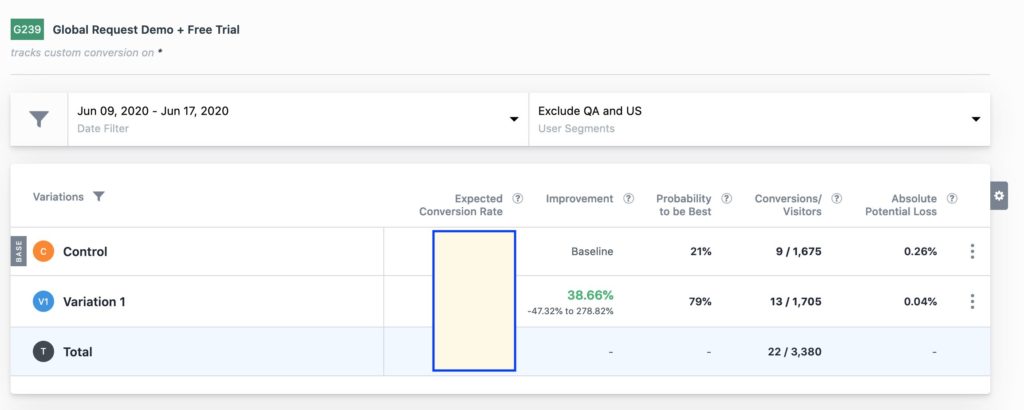This essay is part of the series in which I talk about my learnings and insights building a habit coaching app (Nintee) in 2024. It didn’t ultimately work out because an app has marginal influence in a human’s life (v/s that of friends, family, culture and immediate environment). Most apps that work in the category operate like gyms (charge upfront when the motivation is high, and be okay with high churn). I had raised VC funding for it and later it became clear to me that this wouldn’t be a VC scale business, so I shut it down and returned the remaining funding. Hope the insights learned along the way would turn out to be valuable to others. ...
All posts in Psychology
A primer on dopamine
1/ I recently made notes on the book “Hooked” but wasn’t satisfied by the depth of explanation in it.
2/ I wanted to get down into neuroscience of habit-forming products and that inevitably lead me to the (in)famous neurotransmitter dopamine.

3/ Before we dive into what dopamine does, let’s first make one thing clear: dopamine does NOT generate pleasurable feelings. (In fact, it is the other way around – pleasurable feelings generate dopamine)
The neural circuits that lead us to “liking” are separate from the circuits that generate “wanting”. ... Read the entire post →
Why you will skim this article
Most likely, you’re going to read this sentence and hit the back button.
Still here?
Good, then you’re likely to scan through a few paragraphs in this article and then give up. (Unless, you’re a long-time reader and trust that my writing is worthy of your time. More on this later)
Why are humans so impatient on the web?
Back in the early 1990s, when the web was getting started, websites looked like this.

Today, the same website looks like this.

What happened?
The answer to the question of why the web is increasingly becoming more visual and less text-heavy will also shed light on how we decide what to spend time on, a question that creators and entrepreneurs need to be obsessed with. ... Read the entire post →
How to think about risk
1/ The most common mistake with risk is NOT differentiating:
personal, unique risk
FROM
collective, average risk
2/ Personal, unique risk arises from things that are unique to you.
For example, personal financial risk is what incurs to you because of your peculiar investments. Maybe you picked certain stocks or invested in a “hot” property
3/ Contrast this to the collective and average risk of the entire nation’s economy tanking or a bank tanking and wiping savings of millions of people like you.
4/ Usually we end up conflating these two types of risks in our minds.
Many people don’t invest in equities because it’s too risky.
Yes, it’s risky but in a collective and average way, not a personal and unique way
5/ Protecting against collective risks is an exercise in vain because the collective risk is never eliminated, it’s simply gets shifted somewhere else
6/ Collective risks are less worrisome because collectives of people want status quo
So on the realization of such risks, you can take comfort in the fact that there are millions of other concerned folks who will protect the negative impacts of risk for you
7/ Case in point: the 2008 financial crash in the US.
At that time, everyone thought the world economy was in ruts and that people lost money.
Fast forward to today and thanks to bailouts, after the dip, here’s the US stock market performance. ... Read the entire post →
Perils of binary thinking
Not winning does not imply losing.
(a thread on perils of binary thinking)
1/ We recently ran an A/B test and here were the results.
In the test results we still don’t have 95% statistical confidence (probability to be the best) but we’re going ahead and implementing the variation on homepage.
Why?

2/ Because, and here’s the key idea.
Not getting a winner is different than having a loser!
Allow me to unpack..
3/ Whenever we talk about test results, our immediate hunch is to jump and categorize into binary categories: either something is a winner or a loser.
But in real world, there are no binary categories.
4/ There’s no magic threshold at which a variation suddenly becomes a winner.
The 95% confidence threshold is arbitrary and whether you act based on it (or some other threshold) depends on your goals.
5/ So, even though the variation may not be good, we know that it’s likely that it’s not bad.
Rather than getting trapped into discussions about winner/loser, what matters is what is likely impact of implementing this on website.
6/ In best case, variation actually turns out to be good.
In the worst case, it is similar to existing one.
(In the extreme worst case, it can be a catastrophe but if you see the range of uplift, it is much more likely to be better than worse)
7/ With data, it’s easy to fall into the trap of binary decisions about data while what matters is likely impact.
KNOW the difference between probability and impact.
Read first chapter of this book.
8/ TLDR: there’s negligible probability that that we’d have a catastrophic super-solarflare that will fry up our world’s electronics and internet.
But if that happens, it’ll be really, really bad.
9/ That’s it!
Hope you liked this mini-thread.
The take-home message is to not get fooled by probabilities by always keeping focus on consequences of probabilities. ... Read the entire post →
Twyman’s law
Twyman’s law states that any data or figure that looks interesting or different is usually wrong.
Sounds unbelievable, isn’t it?
But, it’s true. I saw this in action recently and wanted to share that story with you.
In June, we ran a test on our homepage and while I was looking at conversion rate by segments, I noticed that users from Windows had a 400% higher signup rate for VWO free trial as compared to users using Mac OS X.
Now, that’s baffling and our team spent a good deal of time trying to understand why was that happening. Someone in marketing hypothesized that perhaps Mac OS X users have a better design aesthetic and our homepage wasn’t appealing to them. Was it true? ... Read the entire post →
Horizon based thinking
Whenever you’re at a crossroads and are wondering what to do next, here’s how to think.
1/ The first thing to ensure is that you acknowledge that a lot of your decision-making will be driven by how you’re feeling *right now* and not how you’ll feel once you choose a path.
The need to escape can make us choose things that we won’t like long term.
2/ The way to keep emotion-driven decision at bay is to *force* yourself to think in three horizons:
1. Short term goals
2. Long term goals
3. The path between the two
3/ Yes, I know this sounds trivial but far too often:
– We’re either hyper-focused on short term and optimize our way to getting stuck into a local-optima
– Or, we’re hyper-focused on the long term and forget that present actions is how we get to the future ... Read the entire post →
The three levels of Hindu philosophy
1/ The first level related to the metaphysical and spiritual domain.
It says that Brahman is all that exists and our material world (Maya) comes from ignorance.
The Brahman is not a God. It is beyond any quality – it isn’t intelligent, good or bad. It just is.
2/ It also suggests that if we strip away all ignorance, we will discover that the self – the atman – is one and the same thing as the Brahman.
At its core, this level denies the duality of subject and object and says they both are the same. ... Read the entire post →
Making peace with the ambiguity of progress
Is there an arrow of progress in our universe? Or do things change without any particular direction as a goal, like a dust particle engaged in a Brownian motion, bumping and tumbling along randomly?
I don’t think there’s an answer to those two questions. Our thinking is designed to box phenomena into neatly packed categories that capture only a slice of reality. In fact, that’s where the problem with philosophy starts. Even if we both use the same word – say “love”, “free will” or “democracy” – we usually mean slightly different things and these slight differences provide all the fodder for the philosophical debate. ... Read the entire post →
What does the soul of the Marionette say?
I recently finished reading the excellent book The Soul of The Marionette by John Gray. I would put this book in the same genre as one of my other favorite books, Finite and Infinite Games. Both books are short metaphorical essays on progress in (human) life.

Here are my notes from the book.
1/ First of all, what is a marionette? It’s a puppet controlled by a human via strings from above. The reason it’s graceful in its movements is because it lacks self-awareness that it’s being controlled by someone else. ... Read the entire post →